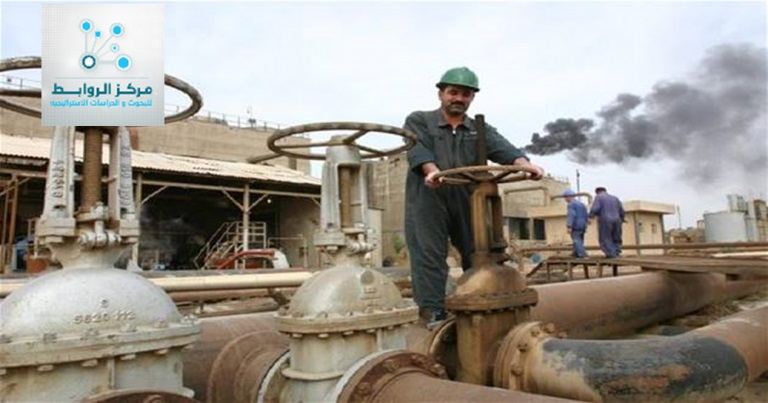The Iraqi federal government warned oil companies from signing any contract with the Kurdistan region of Iraq without its knowledge coincided with the imposition of full control of Iraqi forces on Kirkuk, the rich oil city.
The Iraqi Prime Minister Haider al-Abbadi instructed the Minister of oil Jabbar Laibi to issue an alert and warning from the Federal Oil Ministry to confirm that any oil contracts not known to Baghdad and not a party to it are invalid.
Iraqi Oil Minister Jabbar Laibi stressed on Russia’s largest oil company, Rosneft, for clarification on contracts signed with Iraq’s Kurdistan region, stressing that the contracts were preliminary and not ready for implementation.
The Iraqi national security adviser Faleh al-Fayadh has been sent to Russia to discuss the abolition of the contract of Rosneft in relation of the Kurdistan region, but he did not succeed.
In the same context, Foreign Minister Ibrahim al-Jaafari discussed at his last meeting in Moscow with a number of Russian officials, including the adviser of the Russian President for Energy, Issa, the son of the Grand Mufti of Russia, who has a good relationship with Kurdish officials several common issues concentrating on the unity of Iraq, and the rights of the Kurds, and negotiations according to the Constitution.
At the same meeting, the Iraqi side asked the Russian side to cancel the contract of Rosneft in the Kurdistan region, which has other contracts in southern Iraq, and Isa was one of the strongest opponents of the cancellation of the agreement, which was contracted between Rosneft and the Kurds of Najran Barzani and Kebad Talbani and Ashti Hawrami.
The contract is attractive to the Russian side in terms of oil and gas and export them, stressing that Russia is not ready to give up, which led to resentment of the Iraqi government and the US government, making the latter take a tough position to resolve the crisis in the region.
In parallel context, the Russian energy minister said that the differences between the Iraqi government and the region is an internal issue, and Rosneft has nothing to do with it.
According to oil experts, all the contracts concluded by Erbil with international companies are illegal and in violation of the Constitution. Russia aims to sign these contracts to monopoly the global gas market and control it and prevent the Iraqi gas, which threatens their trade, to compete it , so they agreed with Erbil to invest five sites for oil and gas and establish a new line owned mainly by the Russian company (the largest property for the Russian company) to invest gas and connect the pipeline with the gas pipeline reaching Europe via Turkey. The Russians seek, and do not want to be competed.
Rosneft receives 60% of the export through the Kurdish export pipeline in the Kurdistan region, which has increased its investment in the region by up to $ 3.5 billion, while the Kurdish private kar company receives 40% of the export through the line.
Rosneft said it would invest money in expanding the pipeline in the hope of increasing its capacity by one third to 950,000 bpd. The company is seeking to develop the current pipeline to about 1 percent of the world’s total supply.
The pipeline usually transfers 600,000 barrels per day, but that amount fell to 200,000 bpd after Iraqi forces took control of Kirkuk.
The Kurdish private Kar Company manages 40 percent of the pipeline, which carries 390,000 barrels / day from the fields of Khormala -Avana –Bai Hassan in the region.
Researches at the Institute of Oriental Studies at the Russian Academy of Sciences said “The government of Baghdad has long turned a blind eye to the actions of the Kurdistan Region with respect to oil and gas and exporting them for this tempting contract,” and . Stressing that “Russia is not prepared to give up.
According to data from international companies and export institutions that oil exports from the region are declined to 190 thousand barrels / day, causing the loss of millions of dollars for each day of delay in export.
The following table shows companies, fields and export quantity
The pipeline of crude oil is transferred from Kirkuk and other fields in northern Iraq to the Turkish port of Ceyhan overlooking the Mediterranean Sea.
Other oil companies in the region, such as Norway’s DNO, Janell Enriegi, Galfstone and Dana Gas, say there are no stops for oil exports, indicating that Golf Key Stone, in Shekhan, produces 38,000 barrels per day exported to Turkey.
Shatha Khalil
Economic unity
Rawabet Center for Research and Strategic Studies



